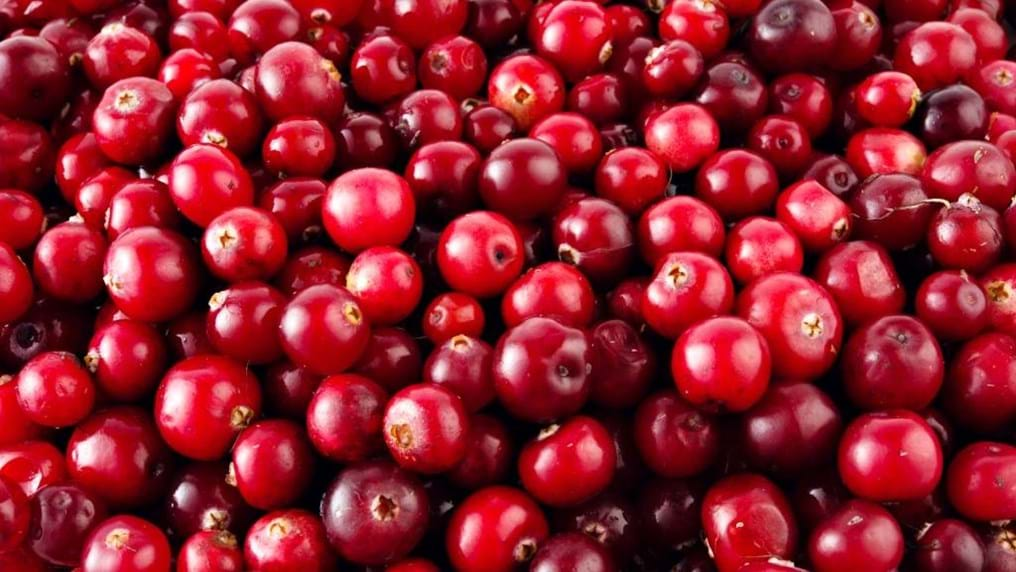Day 180: Super and fruity

23rd November 2014
Author: Geoff Maitland, IChemE President 2014–2015.
The blog raised the spectre of dramatically reduced life spans, due to growing resistance to antibiotics.
The search is now on for a solution in the shape of a 'diagnostic test that will significantly reduce the incorrect use of antibiotics across the world'.
But there are other lines of work, some of which have been under way for a while, seeking different solutions.
One of these is to increase our understanding of 'natural' interventions - like the food we we eat - to reduce the risk of infections in the first place.
If you have been unfortunate enough to suffer from a Urinary Tract Infection (UTI), you'll know they can be painful and uncomfortable. They usually pass within a few days or can be treated with a course of antibiotics (if not resistant).
When you consider that half of all women in the UK will have a UTI at least once in their life, and, to illustrate the numbers in a different way, 13,000 UK men are likely to need treatment every year, it is easy to see how prevention is better than cure.
Although we are discouraged from using the phrase 'superfoods', some pulses, vegetables and fruits are considered 'healthy' and endowed with special properties.
In fact, cranberries - and some of the products made from them - have been associated, anecdotally, with prevention of UTIs for over 100 years.

In recent years, some chemical engineers in Canada have been looking at the science behind the claims.
Initial studies have suggested that cranberries prevent UTIs by hindering bacteria from sticking to the walls of the urinary tract, thanks to phytochemicals known as proanthocyanidins (PACs).
However, the mechanisms by which cranberry materials may alter bacterial behaviour have not been fully understood.
McGill University’s Department of Chemical Engineering embarked on two studies last year, spearheaded by Prof. Nathalie Tufenkji, to assess how cranberries might inhibit UTI-causing bacteria.
Their work also looked at the potential for cranberries to prevent bacterial colonisation in medical devices such as catheters.
The experiments also indicated that increasing concentrations of cranberry powder reduce the bacteria’s production of urease, an enzyme that contributes to the virulence of infections.
Previous work at McGill has already shown that cranberry materials hinder movement of other bacteria involved in UTIs. A genome-wide analysis of an uropathogenic E. coli revealed that expression of the gene that encodes for the bacteria’s flagellar filament was decreased in the presence of cranberry PACs.
The team’s findings are significant because bacterial movement is a key mechanism for the spread of infection, as infectious bacteria literally swim to disseminate in the urinary tract and to escape the host immune response.
Last year, Nathalie said. “More than 150 million cases of UTI are reported globally each year, and antibiotic treatment remains the standard approach for managing these infections. The current rise of bacterial resistance to antibiotics underscores the importance of developing another approach.”
Further research by Nathalie, in collaboration with McGill professor Showan Nazhat, a biomaterials expert at the Department of Mining and Materials Engineering, has found that cranberry-enriched silicone substrates impaired the spread of Proteus mirabilis.
This offers a potential use for cranberry derivatives to hinder the spread of germs in implantable medical devices such as catheters, which are frequently implicated in UTIs.
All of this work is ongoing, but another very important approach to halting the rise of antimicrobial resistance.
ChemEng365 blog
Geoff Maitland launched this blog during his IChemE presidency in 2014. ChemEng365 features 365 chemical engineering successes and achievements throughout his year-long presidency.